De Duitse dichter en schrijver Julius Waldemar Grosse werd geboren op 25 april 1828 in ErfurtZie ook alle tags voor Julius Grosse op dit blog.
Begegnung
Du holde Traumgestalt,
Wie aus verschwundnen Zeiten,
Wie kommt’s, daß du so kalt
Mir kannst vorüberschreiten?
Und doch – dein Aug’, das klare,
Nachleuchtet gnadenmild,
Als blickte vom Altare
Ein sanft Madonnenbild.
Und kommt ein andrer Tag,
Am selben öden Orte
Zähl’ ich der Stunden Schlag
Und harr’ an dunkler Pforte,
Und zähl’ des Herzens Schläge,
Das dein, du Liebste, denkt,
Ob heut auch auf dem Wege
Dein Auge scheu sich senkt.
Doch flammt ein innres Glühn
Auf Wangen dir, den blassen,
Wer fände Muth, sich kühn
Ein ganzes Herz zu fassen!
Du gehst, und wieder nüchtern
Und öde ist der Ort –
Wer lehrt die Lippen schüchtern
Das erste Liebeswort!
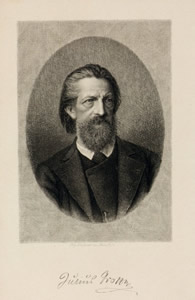
Julius Grosse (25 april 1828 – 9 mei 1902)
De Spaanse schrijver Leopoldo Alas (wereldwijd bekend als ‘Clarín’) werd geboren op 25 april 1852 in Zamora. Zie ook alle tags voor Leopoldo Alas op dit blog.
Uit: Socrates’ Rooster (El gallo de Sócrates, vertaald door Lydia Davis)
„The rooster ran and the philosopher followed within reach. When he was about to grab with his hand the rooster flapped his wings and by way of a flight (or hop) and extreme exertion , brought on by panic, he managed to get on top of the head of a statue representing none other than the goddess Athena.
“Oh irreverent rooster,” the philosopher yelled, making himself a fanatical inquisitor, pardon the anachronism. He quieted down the shouting of his honest conscience, which said: Don’t steal that rooster, with a pseudo-pious sophism and thought: Now you surely deserve death on account of your sacrilege. You’ll be mine. You’ll be sacrificed.
The philosopher got on his tip toes, stretching himself as much as possible, and made short pathetic hops. But to no avail.“
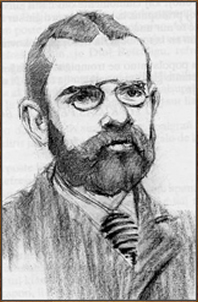
De Duitse dichter en schrijver Sigmund von Birken werd geboren op 25 april 1626 in Wildstein nabij Eger. Zie ook alle tags voor Sigmund von Birken op dit blog.
Um Weißheit und Verstand, das Gute zu erwählen
Nach der Singweise: Auf, auf! mein Hertz, und du mein ganzer Sinn, usw.
1.
Auf Erden hier wohnt lauter Unverstand,
Der Himmel ist der Weißheit Vatterland:
Dahin will ich mich jetzt im Geiste schwingen,
Witz und Verstand mit mir zurücke bringen.
2.
Zum Sionsberg heb ich die Augen auf
Und mit Gebet mir Raht und Hülfe kauff:
Dort quellen auf die rechten Musenbrunnen,
Aus welchen kommt Witz und Verstand gerunnen.
3.
Laß deinen Geist, O Gott, mich feuren an,
Der nur allein mich geistig machen kan:
Ohn dich ist nichts mein Dichten und mein Wachen,
Es kan ohn dich mein Machen wenig machen.
4.
Gib ihn mir zu als einen treuen Raht,
Wann meine Wahl wankt zwischen Nutz und Schad,
Daß mein Verstand nit mög deß Guten fehlen,
Und daß der Will das Bäste mög erwählen.
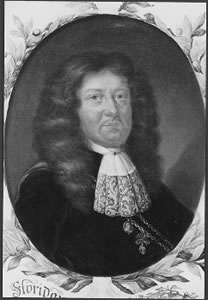
Sigmund von Birken (25 april 1626 – 21 juni 1681)
De Tsjechische dichter en vertaler Jindřich Hořejší werd geboren op 25 april 1886 in Praag. Zie ook alle tags voor Jindřich Hořejší op dit blog.
Uit: Le Brave soldat ChvéÏk (Vertaling door Jindřich Hořejší)
„C’est du propre ! M’sieur le patron, prononça la logeuse de M. Chvéïk qui, après avoir été déclaré « complètement idiot » par la commission médicale, avait renoncé au service militaire et vivait maintenant en vendant des chiens bâtards, monstres immondes, pour lesquels il fabriquait des pedigrees de circonstance.
Dans ses loisirs, il soignait aussi ses rhumatismes, et, au moment où la logeuse l’interpella, il était justement en train de se frictionner les genoux au baume d’opodeldoch.
— Quoi donc ? fit-il.
— Eh ! bien, notre Ferdinand… il n’y en a plus !
— De quel Ferdinand parlez-vous, M’ame Muller ? questionna Chvéïk tout en continuant sa friction. J’en connais deux, moi. Il y a d’abord Ferdinand qui est garçon chez le droguiste Proucha et qui lui a bu une fois, par erreur, une bouteille de lotion pour les cheveux. Après, il y a Ferdinand Kokochka, celui qui ramasse les crottes de chiens. Si c’est l’un de ces deux-là, ce n’est pas grand dommage ni pour l’un, ni pour l’autre.“
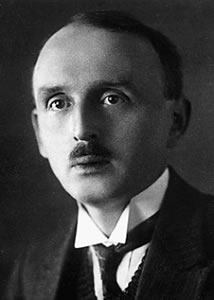
Jindřich Hořejší (25 april 1886 – 30 mei 1941)
De Engelse essayist en diplomaat Sir William Temple werd geboren in Londen op 25 april 1628. Zie ook alle tags voor Willam Temple op dit blog.
Uit: Observations upon the United Provinces of the Netherlands
„In the first constitution of this government, after the revolt from Spain, all the power and rights of Prince William of Orange, as Governor of the Provinces, seem to have been carefully reserved. But those which remained inherent in the Sovereign, were devolved upon the assembly of the States-General, so as in them remained the power of making peace and war, and all foreign alliances, and of raising and coining of monies: in the Prince, the command of all land and sea forces, as Captain-general and Admiral, and thereby the disposition of all military commands, the power of pardoning the penalty of crimes, the chusing of magistrates upon the nomination of the towns; for they presented three to the Prince, who elected one out of that number. Originally the States-General were convoked by the council of State, where the Prince had the greatest influence: nor, since that change, have the States used to resolve any important matter without his advice. Besides all this, as the States-General represented the sovereignty, so did the Prince of Orange the dignity, of this State, by public guards, and the attendance of all military officers; by the application of all foreign ministers, and all pretenders at home; by the splendor of his court and magnificence of his expence; supported not only by the pensions and rights of his several charges and commands, but by a mighty patrimonial revenue in lands and sovereign principalities and lordships, as well in France, Germany, and Burgundy, as in thy several parts of the Seventeen Provinces; so as Prince Henry was used to answer some that would have flattered him into the designs of a more arbitrary power, that he had as much as any wise Prince would desire in that State; since he wanted none indeed, besides that of punishing men, and raising money; whereas he had rather the envy of the first should lie upon the forms of the government, and he knew the other could never be supported, without the consent of the people, to that degree which was necessary for the defence of so small a State against so mighty Princes as their neighbours.“
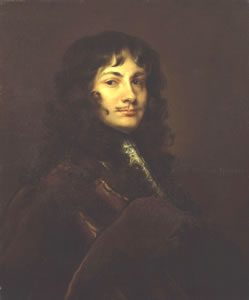
William Temple (25 april 1628 – 27 januari 1699)
Portret door Sir Peter Lely
